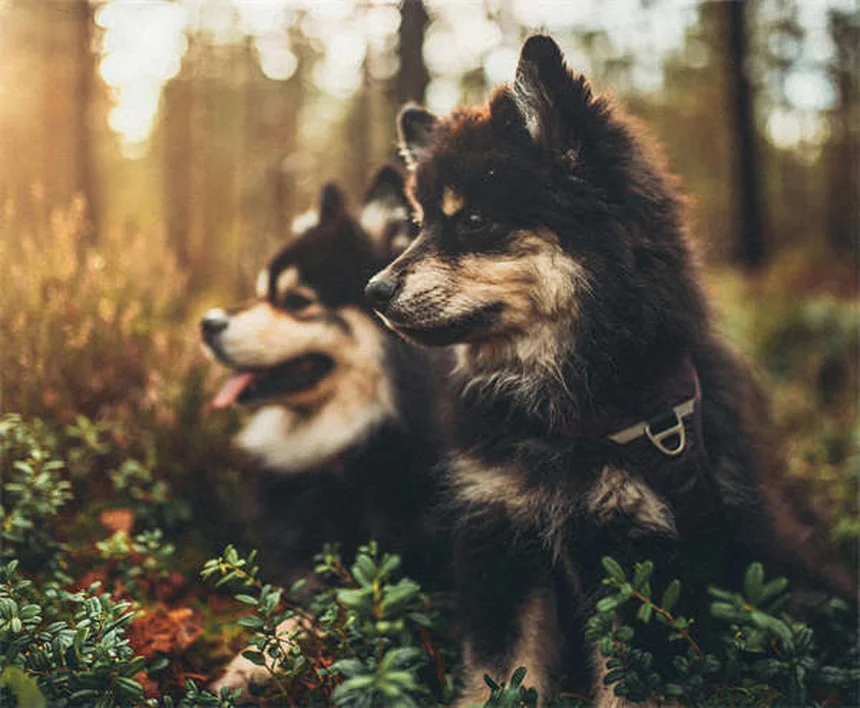Advertisement
Do gerbils get tumors? The answer is yes - and as a pet owner, you need to know what to look for. Gerbils commonly develop tumors on their ears, feet, and ventral marking glands, with older gerbils being particularly at risk. While some tumors are harmless, others can become cancerous if left untreated. I've seen too many cases where early detection made all the difference - like when my own gerbil Mochi developed a small lump behind his ear that we caught just in time. The good news? With proper veterinary care, many gerbils can recover successfully from tumor removal surgery. In this guide, we'll walk through everything from spotting warning signs to post-op care, giving you the knowledge to keep your furry friend healthy.
E.g. :Puppy's First Vet Visit: What to Expect & How to Prepare
- 1、Understanding Tumors in Gerbils: What Every Pet Owner Should Know
- 2、Beyond the Basics: More About Gerbil Health
- 3、FAQs
Understanding Tumors in Gerbils: What Every Pet Owner Should Know
Spotting the Warning Signs
Let me tell you something - gerbils are tough little creatures, but they can develop tumors just like any other pet. The most common spots? Their ears, feet, and those special scent glands on their bellies. You might notice strange lumps or sores that just don't heal.
Now here's something interesting - while skin tumors are easy to spot, internal tumors play hide-and-seek. Your gerbil might show subtle signs like not eating well, acting depressed, or having tummy troubles. Blood in their poop is always a red flag that should send you straight to the vet. Remember that time my neighbor's gerbil, Peanut, kept scratching his ear? Turned out to be a small tumor that we caught early!
Why Do Tumors Happen?
Ever wonder why these growths appear? Science still doesn't have all the answers, but we know some tumors run in gerbil families. It's like how some humans are more likely to get certain conditions - genetics play a role.
Here's the wild part - tumors start when cells go rogue and multiply like crazy. Imagine a classroom where one kid starts copying their homework a hundred times instead of just once. That's basically what's happening at the cellular level!
 Photos provided by pixabay
Photos provided by pixabay
Getting the Right Diagnosis
When you bring your gerbil to the vet, they've got some cool tools in their arsenal:
| Diagnostic Tool | What It Does | Fun Fact |
|---|---|---|
| X-rays | Shows bone structure and some masses | Same technology used at airports! |
| Blood Tests | Checks overall health markers | Tiny needles for tiny patients |
| Biopsy | Takes a small tissue sample | Helps tell if it's benign or malignant |
Did you know that vets can use CT scans and MRIs too? These fancy machines give super detailed pictures, though they might require your gerbil to stay extra still (good luck with that!).
Treatment Options That Work
Here's the million dollar question: What happens if my gerbil has a tumor? Well, most vets will recommend surgery - and the sooner, the better. Think of it like removing a weed before it takes over your whole garden.
I'll never forget Mr. Whiskers, a gerbil who had a tumor removed last year. His owner was nervous, but the surgery went smoothly. The key? Catching it early before it could spread. Sometimes tumors can't be removed, but vets can still help manage symptoms and keep your little friend comfortable.
Post-Op Care: Helping Your Gerbil Heal
After surgery, your gerbil will need some TLC. Keep their cage extra clean, provide soft bedding, and maybe even set up a "recovery suite" away from cage mates. Your vet will give specific instructions - like how to care for stitches or when to give medication.
Pro tip: Watch their food intake closely. A recovering gerbil might need tempting treats to keep their strength up. Try their favorite seeds or a bit of banana (the gerbil equivalent of chicken soup!).
 Photos provided by pixabay
Photos provided by pixabay
Getting the Right Diagnosis
Here's the tough truth - we don't have magic prevention methods yet. But keeping your gerbil healthy overall gives them the best shot at fighting off problems. That means:
- Quality food (no junk food!)
- Clean living space
- Regular check-ups
- Lots of love and attention
When to Sound the Alarm
How do you know when to worry? Any unusual lump that grows quickly or changes color deserves attention. Also watch for behavior changes - if your normally active gerbil becomes a couch potato, it's vet time.
Remember, you know your pet best. That gut feeling when something's "off"? Trust it. Early detection makes all the difference in treatment success.
Living With a Gerbil Who Had Cancer
If your gerbil has been through cancer treatment, celebrate each day! Adjust their environment as needed - maybe lower cage levels if they're less agile. Keep up with vet visits and enjoy your time together.
Funny story - one gerbil I know who beat cancer developed a hilarious habit of stealing socks during recovery. His owner called it his "victory dance." Little moments like these make the journey worthwhile.
 Photos provided by pixabay
Photos provided by pixabay
Getting the Right Diagnosis
Dealing with tumors can be scary, but knowledge is power. Stay observant, build a good relationship with your vet, and don't panic at every bump. Most importantly, enjoy your time with your furry friend - they're tougher than they look!
By the way, did you know gerbils can recognize their owners' voices? Next time you're checking for lumps, try talking to them - it might just calm you both down.
Beyond the Basics: More About Gerbil Health
The Emotional Side of Pet Illness
Let's talk about something we don't often discuss - how you feel when your gerbil is sick. It's completely normal to feel worried or even guilty. I remember when my first gerbil, Speedy, developed a tumor - I kept thinking "Did I do something wrong?"
The truth is, these feelings are part of being a caring pet owner. What helped me was joining online gerbil communities where other owners shared their experiences. You'd be surprised how many people are going through the same thing! Sharing your worries makes them lighter to carry, and you might pick up some great tips along the way.
Alternative Therapies Worth Considering
Did you know some vets specialize in holistic care for small pets? While traditional treatments like surgery are usually the first line of defense, options like acupuncture or herbal supplements might help with recovery. Now, I'm not saying your gerbil needs tiny needles - but it's fascinating what's available!
Here's a comparison of some complementary therapies:
| Therapy | Potential Benefits | Best For |
|---|---|---|
| Massage | Improves circulation, reduces stress | Post-surgery recovery |
| CBD Oil | May reduce pain and inflammation | Older gerbils with chronic issues |
| Laser Therapy | Promotes wound healing | Skin tumors or surgical sites |
Always check with your vet before trying anything new - what works for humans might not be safe for your tiny friend!
The Financial Reality of Gerbil Care
Here's a question that might surprise you: How much should you budget for potential gerbil health issues? Well, tumor treatments can range from $100 for a simple removal to $500+ for advanced cases. I recommend setting aside a "pet emergency fund" - even $20 a month adds up!
Some pet insurance plans now cover exotic pets like gerbils, though you'll need to read the fine print. When my gerbil needed surgery, I was lucky to find a vet school that offered discounted rates - always worth asking about payment options!
Gerbil-Proofing Your Home for Recovery
After treatment, your gerbil's world needs to be extra safe. Remove any tall platforms they could fall from - imagine trying to climb after anesthesia! I like to create a "recovery habitat" with:
- Paper-based bedding (less dusty)
- Shallow food and water dishes
- Extra hiding spots for comfort
- Soft fleece blankets (they love these!)
One creative owner I know made a mini ramp so her gerbil could still access different cage levels without jumping. It's these little adjustments that make a big difference!
The Science Behind Gerbil Longevity
Ever wonder why some gerbils live longer than others? While tumors can shorten lifespans, proper care can help your pet reach their full potential. Researchers have found that gerbils in enriched environments with mental stimulation tend to be healthier overall.
Try rotating toys weekly to keep things interesting - a bored gerbil is more likely to develop stress-related health issues. And here's a fun fact: gerbils who get regular handling from their owners tend to have stronger immune systems!
When to Consider a Second Opinion
How do you know if you need another vet's perspective? If treatment isn't working or the diagnosis seems unclear, it's perfectly reasonable to seek a second opinion. I once drove two hours to see a specialist, and it was the best decision I could've made for my gerbil.
Look for vets who are members of the Association of Exotic Mammal Veterinarians - they have extra training with small pets like gerbils. Your regular vet won't be offended - good professionals understand you want the best care for your pet!
The Joy of Senior Gerbil Care
If your gerbil beats cancer or lives with a benign tumor, you might get to enjoy their golden years together. Older gerbils are absolutely adorable - they become more cuddly and develop funny little habits. My friend's gerbil started "talking" more in his old age, making all sorts of new sounds!
Adjust their diet slightly - softer foods are easier to eat. And don't be surprised if they nap more - wouldn't you want extra rest after a lifetime of running on that wheel?
Creating Lasting Memories
Here's something I've learned from years of gerbil ownership: document your journey together. Take videos of their silly antics, keep a journal of health notes, or even make paw print art. These memories become priceless, especially if your time together is limited by health issues.
One of my favorite photos shows my gerbil "helping" me work by sitting on my keyboard - tumor and all. It reminds me that even during tough times, there's always joy to be found in our furry friends.
E.g. :Tumors and Cancers in Gerbils | PetMD
FAQs
Q: How can I tell if my gerbil has a tumor?
A: Look for visible lumps on your gerbil's ears, feet, or belly area where their scent glands are located. These are the most common spots for tumors to appear. For internal tumors that you can't see, watch for changes in behavior like loss of appetite, lethargy, or unusual bathroom habits. I always tell owners to do weekly "health checks" - gently feel your gerbil while petting them to catch any abnormal growths early. Remember that time I noticed Peanut the gerbil scratching constantly? That persistent irritation turned out to be a small tumor we caught in its early stages.
Q: Are all tumors in gerbils cancerous?
A: Not at all! Many gerbil tumors are benign, meaning they won't spread to other parts of the body. However, only your vet can determine this through proper testing like biopsies or imaging. I've seen cases where what looked like a scary lump was just a harmless cyst. That said, even benign tumors can cause problems if they grow too large or interfere with your gerbil's movement. My rule of thumb? Any new growth deserves a vet visit, because early intervention gives the best outcome regardless of whether it's cancerous.
Q: What's the treatment for gerbil tumors?
A: Surgical removal is typically the first-line treatment for accessible tumors. Think of it like weeding a garden - you want to get the whole root out before it can spread. For tumors that can't be removed, vets focus on managing symptoms and keeping your pet comfortable. I remember Mr. Whiskers' case where we successfully removed a large ear tumor - his recovery was smooth because we acted quickly. Post-op care usually involves keeping the cage extra clean, monitoring the incision site, and possibly giving medication. Your vet will create a customized plan based on your gerbil's specific needs.
Q: Can I prevent tumors in my gerbil?
A: While there's no guaranteed way to prevent tumors, you can reduce risk factors by maintaining excellent care. Feed a high-quality diet (no fatty treats!), keep their living space clean, and minimize stress. I recommend annual check-ups for adult gerbils, as these can help catch problems early. One of my clients had a gerbil who lived to be 5 years old (ancient in gerbil years!) with no tumors - she credited their strict routine and attentive care. Genetics play a role too, so if possible, ask about the health history of your gerbil's parents when you adopt.
Q: How do I care for my gerbil after tumor surgery?
A: Post-op care is crucial! Set up a quiet recovery area with soft bedding and easy access to food/water. You'll want to: 1) Keep the cage extra clean to prevent infection, 2) Monitor their eating habits closely (try tempting them with favorite treats), and 3) Limit physical activity for a few days. I always suggest keeping other gerbils separated initially to prevent roughhousing. One of my favorite recovery stories involves a gerbil who discovered a love for mashed banana during her healing process - it became her special "get well" treat! Follow your vet's specific instructions about medication and wound care.


















